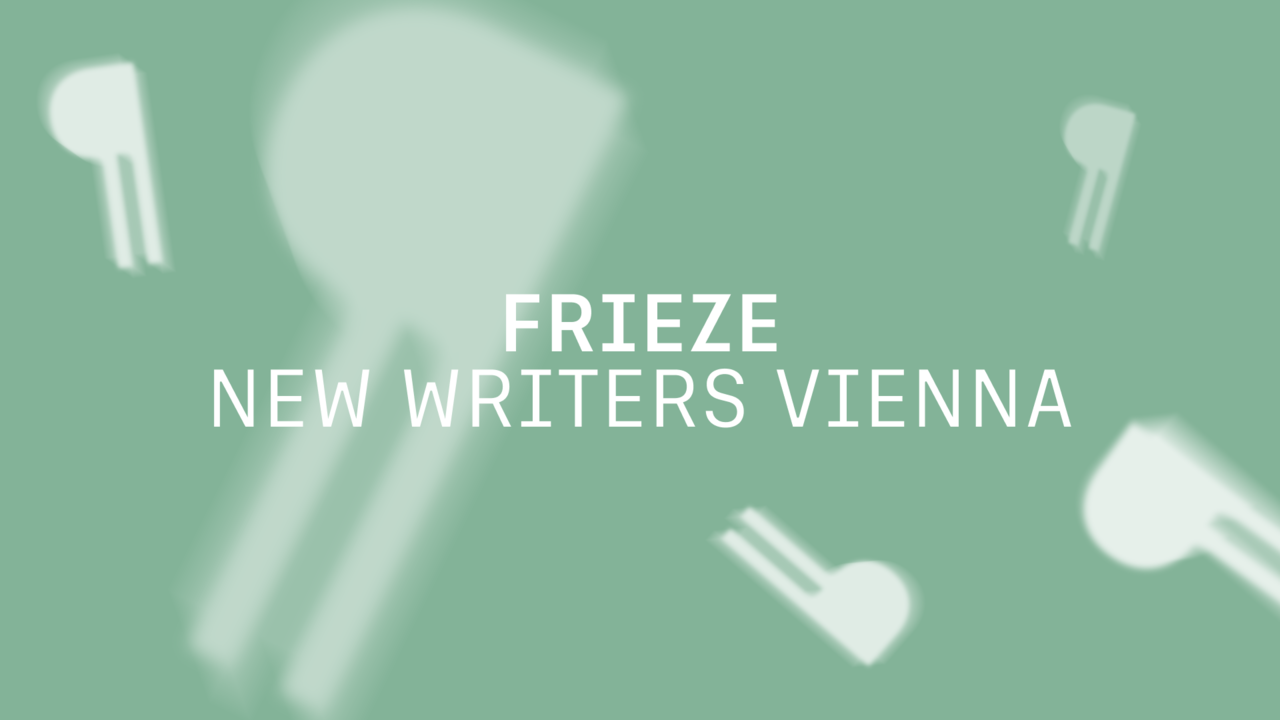Sophie Reinhold: Why Talk of Love at a Time Like This?!
Spectral lone female figures pose and recline in a series of nebulous paintings on view at Galerie Rüdiger Schöttle, Munich
Spectral lone female figures pose and recline in a series of nebulous paintings on view at Galerie Rüdiger Schöttle, Munich

The title of Sophie Reinhold’s exhibition, ‘Why Talk of Love at a Time Like This?!’, at Galerie Rüdiger Schöttle is almost exasperating in its punctuated ambiguity. Who is being addressed? Is this a personal or political exasperation? And why shouldn’t we talk about love? Neither a question nor an answer, its rhetoric invites more questions than answers – which, as is momentarily implied, fitting at a time like this.
This deliberate misdirection manifests at the entrance to the show: a wall of black PVC strip curtains, such as those used in industrial or commercial spaces or in cold storage rooms. Its tang floats in the air as you pass through to the other side. The artist has used this material previously. In her work Basic Care (2017), on view last year at Sophie Tappeiner in Vienna, lengths of transparent, red PVC hung at the galley entrance, like heavy drapes. Yet while Basic Care had connotations of warmth and shelter, the curtains at Rüdiger Schöttle make you feel like you’re walking into a meat locker rather than a snug European cafe. The paintings installed here have a coldness, too. Heavily worked in oils and powdered marble, the fleshy glean of Eternal Assumption of a Waking Dream (2017) lends the piece the pallor of frozen meat.

In the past, Reinhold has made paintings shaped like corner bathtubs. With their concave and bulbous edges, two of the canvases here also do not adhere to traditional formats. A dome protrudes from the otherwise square outline of Arrow Paradox (2018), bending around the head of a spectral, delicately executed, naked female figure. The frame almost resembles a floor plan as seen from above, perhaps mirroring what’s conjured in the other painting, Spatial Hearing (2018). In this work, the indented canvas combines with geometric, perspectival lines on a blemished, almost monochromatic surface to compose an image resembling an architectural alcove. A bowed, rectangular shape follows the contours of this curvature to create the illusion of a two-dimensional object suspended within flatness. Its form recalls a mihrab: the niche built into walls in mosques, indicating the direction of Mecca.
Undefined shapes and spatial allusions repeat throughout Reinhold’s canvases amongst a mix of styles, from loose brushwork to the diagrammatic. Vertical lines are worked into several of her paintings, too, a formal motif that resonates with the curtain in the show, which accrues significance as a prop or screen. For instance, it functions as both display and framing device for Ruth (2018). The discretely installed portrait of a woman is made visible through a square of clear plastic cut from the black PVC, leaving the work to be examined from a distance, or maybe protected as if it was a venerable or contaminate.

Longhaired and wearing a high-necked red garment, the figure is surrounded by an aura of light-blue tones set against a nebulous background that is scratched with outlines of a deer and an apple. Her gaze is direct, subdued. Is she the inquirer in the show’s title or the person being asked? Is this the woman who materializes in the other paintings, the face overpainted in Eternal Assumption of a Waking Dream, bar an isolated eye and wave of hair? Again, such obstruction and obfuscation saves Reinhold’s work from simple reification. The artist’s clever manipulation of spatial confines, be it a painting or a gallery, keeps the show in constant flux by setting up compositions and sightlines to distract the viewer. In this sense, the exhibition’s title, deflective as it may be, is a perfect foil.
Sophie Reinhold: Why talk of love at a time like this?! runs at Galerie Rüdiger Schöttle, Munich until 2 June.
Main image: Sophie Reinhold, Ruth, 2018, installation view, Galerie Rüdiger Schöttle, Munich. Courtesy: the artist and Galerie Rüdiger Schöttle, Munich; photograph: Wilfried Petzi





















